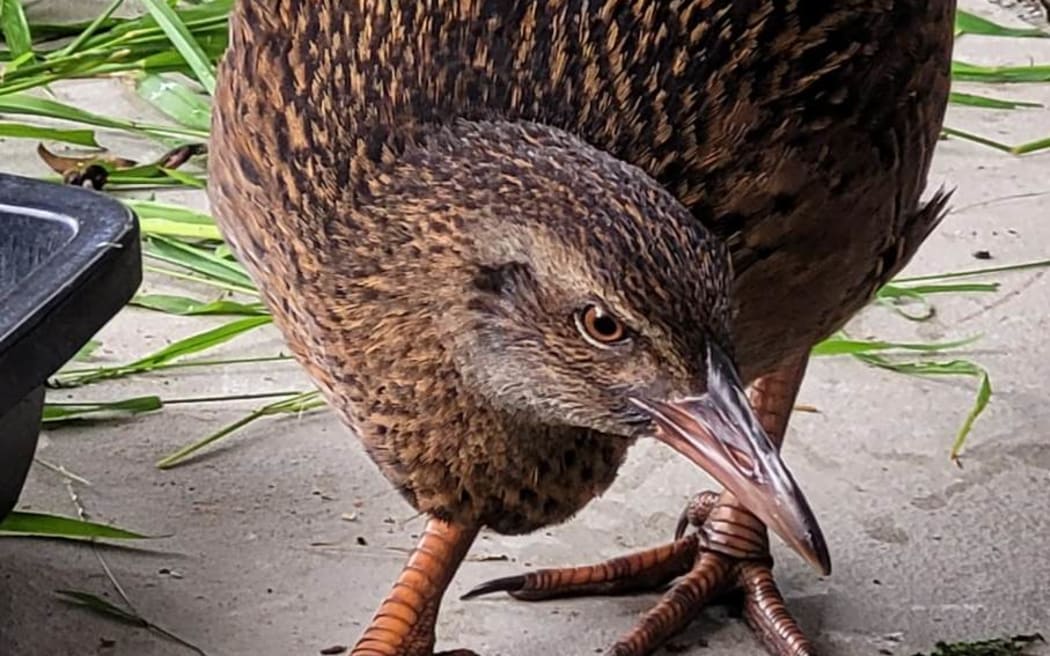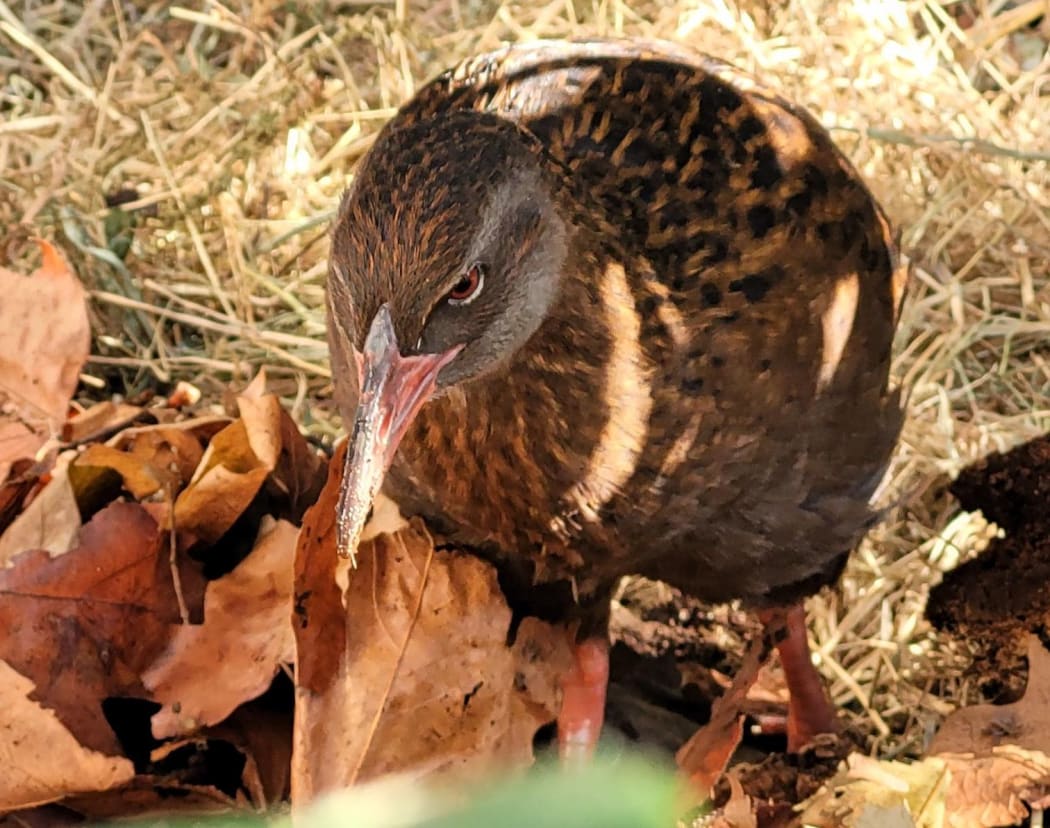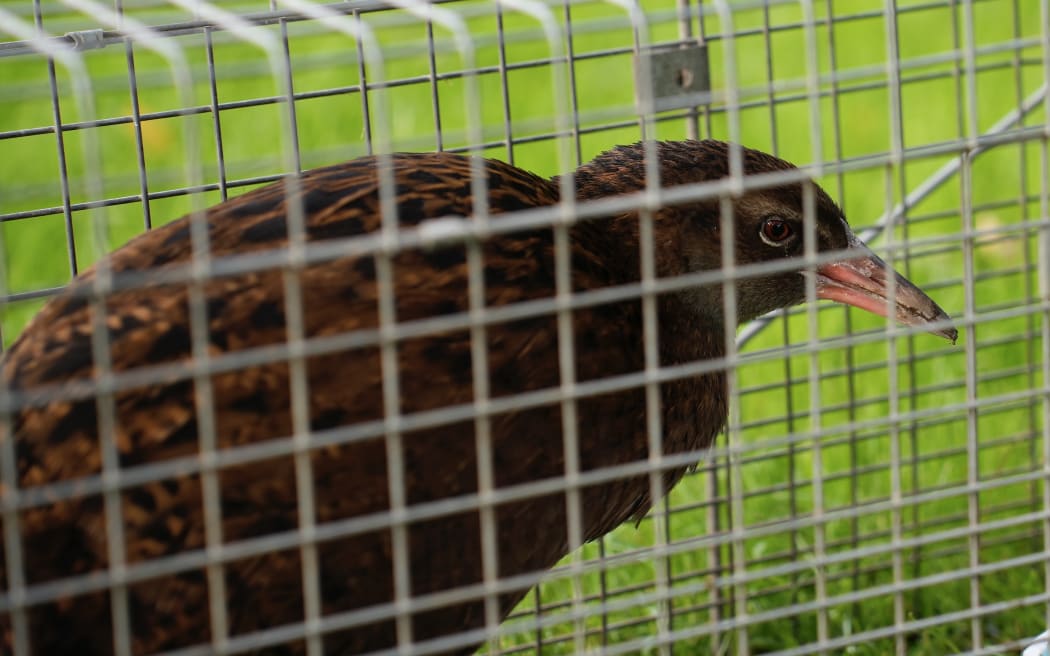
Wally the weka, one of the mysterious birds found in Taranaki. Photo: Supplied/DOC
The mystery of Manaia's wayward weka has deepened with the capture of a second bird discovered in the South Taranaki township.
While weka are relatively common in the South Island they have not been sighted in Taranaki for decades and the discovery of a second bird has the Department of Conservation (DOC) worried that someone is illegally releasing the birds in the area.
DOC biodiversity supervisor Jared Coombes said because of their scavenging habit, weka occupy a problematic conservation niche and could have predatory impacts on other fauna, especially burrow-nesting seabirds, ground nesting birds, reptiles, and large invertebrates.
"If weka were to get on Taranaki Maunga they pose a real risk to the native wildlife while the ecosystems and populations are still in such a recovery phase."
Manaia locals Jenny and Guy Oakley caught the latest weka at their farmlet in March.
The couple who volunteer at the Rotokare Scenic Reserve and for the Taranaki Kiwi Trust, understood weka were voracious predators and posed a risk to vulnerable wildlife.
"I thought there was only one weka and it had been caught," Jenny said. "But Guy saw the rear end of a weka disappearing through the grass one day."
Then she heard a weka doing its "cooee call" in a swampy area of their farm, so over a period of days, the couple played weka calls over a phone and the bird would reply.
But catching the wayward weka was not so easy.
"I talked to DOC and set up a live-catch possum cage with cat nuts and a bit of meat in it, but it (the weka) was pinching the food from between the bars without entering the trap."
Not prepared, she quit her weka-capture efforts and altered her tactics based on DOC advice.
"A DOC ranger mentioned weka like going through dark tunnels, so I wrapped the trap up in black cloth."

Weka have not been sighted in Taranaki for decades. Photo: Brooklands Zoo
The first night Jenny and Guy caught a rat, and the second night they caught a weka.
"It was very healthy looking and quite happy," Jenny said.
DOC took the weka to Brooklands Zoo and the Oakleys reset the trap as there may be other weka.
Both birds were being cared for off-display at Brooklands Zoo while DNA tests were undertaken, and a decision was made on where they will be rehomed.
Testing of the first bird showed it originated from the Tasman Nelson area but mystery surrounds how it got to Taranaki.
Coombes said there may yet be more weka in Manaia.
"We're continuing to ask locals to keep an eye out and report any weka sightings to us. If they can humanely capture a weka alive, as Jenny and Guy have, that will help us, too. We encourage people to hand over any birds to us immediately, and we'll take it from there."
Coombes said to catch, hold or release wildlife species you must have permission from DOC. Holding or releasing native wildlife can result in fines and or prosecution.

A weka found at Manaia. Photo: Jenny Oakley
Weka fact file
Records show weka were in Taranaki in 1918 but reported to be gone from the region by 1938.
An attempt at reintroducing weka to Taranaki Maunga in the 1970s was deemed unsuccessful, with one weka turning up at Port Taranaki and no other confirmed sightings.
Unconfirmed sightings of weka were reported on the south side of Taranaki Maunga in the early 2000s.


